Budapest | Travelogue Part III
Part 3 of 3: "Departure". Travel essay & photography. Started 6.24.26; finished 7.11.25.
I’ll respect privacy here, and not post or detail any revealing aspects of the Bride or Groom’s ceremony. Broad strokes: there was a church service, at a grand and lovely Catholic church site; following that, drinks before a civil ceremony in Hungarian and English outside their reception hall, delivered by a hardworking and on-his-game officiant/coordinator/MC. Once inside, seats and salads, cocktails and champagne; speeches (I was happy with mine, and grateful I’d read it through several times out loud prior to delivery); then dinner, drinks, and dancing until 4 am. The Bride and Groom made a request that their guests stay with them until dawn: sure enough, blue pre-dawn light was in the sky as I made my way back to the hotel that night.
How odd, to savor these moments at this place in history. During my best friend’s wedding, US President Donald John Trump ordered airstrikes on three Iranian nuclear-enrichment sites - a dumbass end-game to a dumbass decision to withdraw from a nuclear nonproliferation treaty with Iran eight years earlier. In this, as in countless other ways, he has betrayed his nation’s best interests and traditions. Hungary itself provides little respite from these cataclysms: government here is becoming more infused with a cosa nostra mentality with each passing year. It is, as America may soon be, an ethno-kleptocracy, where wealth and native Hungarian lineage determine access to power and privilege. A friend with dealings in Hungary recounts stories of business owners who are approached by Orbán-connected heavies, telling them, “This is a great business.” They don’t even bother with the “...it’d be a shame if anything happened to it” extortion move: they simply take the lease and license the next day, and run it as their own. Who’s to stop them, in a country where judicial power is exercised through patronage and bribery? And who’s to stop America from emulating these dark trends, with a Congress and Supreme Court so supplicant to Dear Leader’s will?
Building cranes dot the skyline throughout Budapest - they’re an ever-present feature. Enough new development, enough material improvement to its crumbling street-corners, and Budapest’s people may find they can keep peace with Viktor Orbán’s light-touch autocracy. Hungarian Parliament is the defining feature of the city’s skyline, however: the seat of government which gives the clearest visual symbol of the land it represents. Outside, it's as grand as Westminster; as elaborate as a cathedral. And though defaced by a sordid brand of exclusionary politics inside, they don’t stop its white neo-gothic limestone forms still hold pinks and oranges from the sunset like a tone poem. Parliament speaks to and of enduring beauty in Budapest: one that may yet outlive its current anxious moment of rising sea-levels, and rising authoritarianism. Hungary lost its democracy one small legislative adjustment at a time, and its path to reclaiming it is beset by difficulties from all sides. What Hungary’s experience augurs for our own is, mercifully, not a settled issue: politics are fluid, and built on changing realities as much as historical identity. But if you listen, you can hear stern warnings. More anti-Zelenskyy/anti-Ukraine-in-EU billboards on the way out of town - even as the streets stay thronged with tourist dollars.
*********** What’s to be done, then? A little living, while it’s there. The sun is heavy in the air, searing and drastic, 800 kilometers from the Adriatic’s moderating influence. People are stepping away from work for lunch, or for a siesta in a courtyard if they’re lucky. Both Budapest’s wide boulevards and its pencil-thin backstreet sidewalks are full of all walks of life, all united in impromptu search for respite and friendly talk in the shade. This is what Budapest gives most of all - a new appreciation of essentials; of things which abide through seasons and regimes. You come for the things that endure, the cafés and the castles and the spas along the Danube. You come for its history, which is a physical thing, coded into Budapest’s present; into its people, into their immense, justifiable love of place. Oppression holds no power over a sunny day here. Everything overlaps and spills into everything: even the graffiti feels less like rebellion, and more like a covert attempt at belonging. Slash your tag on the wall, and lay a little claim to this place. Walk a block, and find a condemned property, shuttered and broken-faced and ready for the cranes; turn the next block, and you’re staring up at the Hungarian State Opera, its world-class acoustics, its Renaissance motifs.
Poles collapse; contrasts dissolve; disunity and community fluctuate in Budapest; are up for negotiation, like everything else. The contradictions between its pains and its beauties are too apparent, too raw and honest, for it to live any other way. Two defining experiences I need to end by mentioning: On my last full day in the city, after Bride and Groom’s Sunday brunch is over, I make the aforementioned visit to the Hungarian National Gallery with two friends, where exemplars from the past several centuries of Hungarian artistic life have taken up permanent residence. The off-beat avant-garde genius of Tivadar Csontváry Kosztka - the Barbizon landscapes of Mihály Munkácsy - the sensitivity and grace of Károly Ferenczy’s Sermon on the Mount, and The Paintress - it all impresses itself upon me deeply in the late-day light. There is, in the collection, the whole fire-and-earth soul of Hungary, and mysteries in its long corridors worth many hours.
As with our dinner at SALT, I find my desire to rhapsodize the experience probably outstrips your interest in reading about it. I’ll spare you the purple prose, and the flights of figurative language - but please note it as an unmissable, should you be in the city. So one last memory; one last grace-note of magic. On my last morning in Budapest, I set an alarm that robs me of REM sleep, but gifts me the most scenic breakfast of my life. I had found out about New York Café through a documentary TV series, and felt an immediate pull to experience a meal there: this meant beating the rush for a table and getting to the café as close as possible to the start of service, at 7am.
Commissioned as a tribute to the city’s spirit of eclecticism, the café opened in 1894, along with the New York Life Insurance Company building it’s housed in. The company couldn’t maintain its presence through Budapest’s subsequent century of upheavals, but New York Café abides, like a recurring dream:
“Dream” gives the wrong flavor, though. A fantasia is closer to it. A wild, passionate dream that someone threw taste and money at, until it became reality. It must have been through several restorations, to look as pristine as it does, but you walk through it and put your hands on its fixtures, and you are transported. You imagine it as new, as if you were at its opening 130 years ago - in a top-hat and tails, under candle-lit chandeliers, folk dances on slow strings filling the night behind you with romance.
If the Old Gods have truly left this city to its own devices following a century-plus of occupation and mismanagement; if the Orbán government continues to pursue its dark end-games unchecked; if Budapest is due for another succession of falls before it can rise again; there will still be New York Café. There will still be Károly Ferenczy and 51 of his love-notes to humanity, framed and hung in the National Gallery. There will be remembrances of Gábor Szabó, of Arthur Koestler. There will still be couples, straight and gay and queer and all points in-between, taking the air on Buda’s fortress hills, and peering down the palisades at the tourist boats and barges vying for dock-lines along the Danube. There is hope in Budapest. Fantasias can still root down in the growing season. For to dream of the future in the past tense is what the Hungarian spirit was built for.




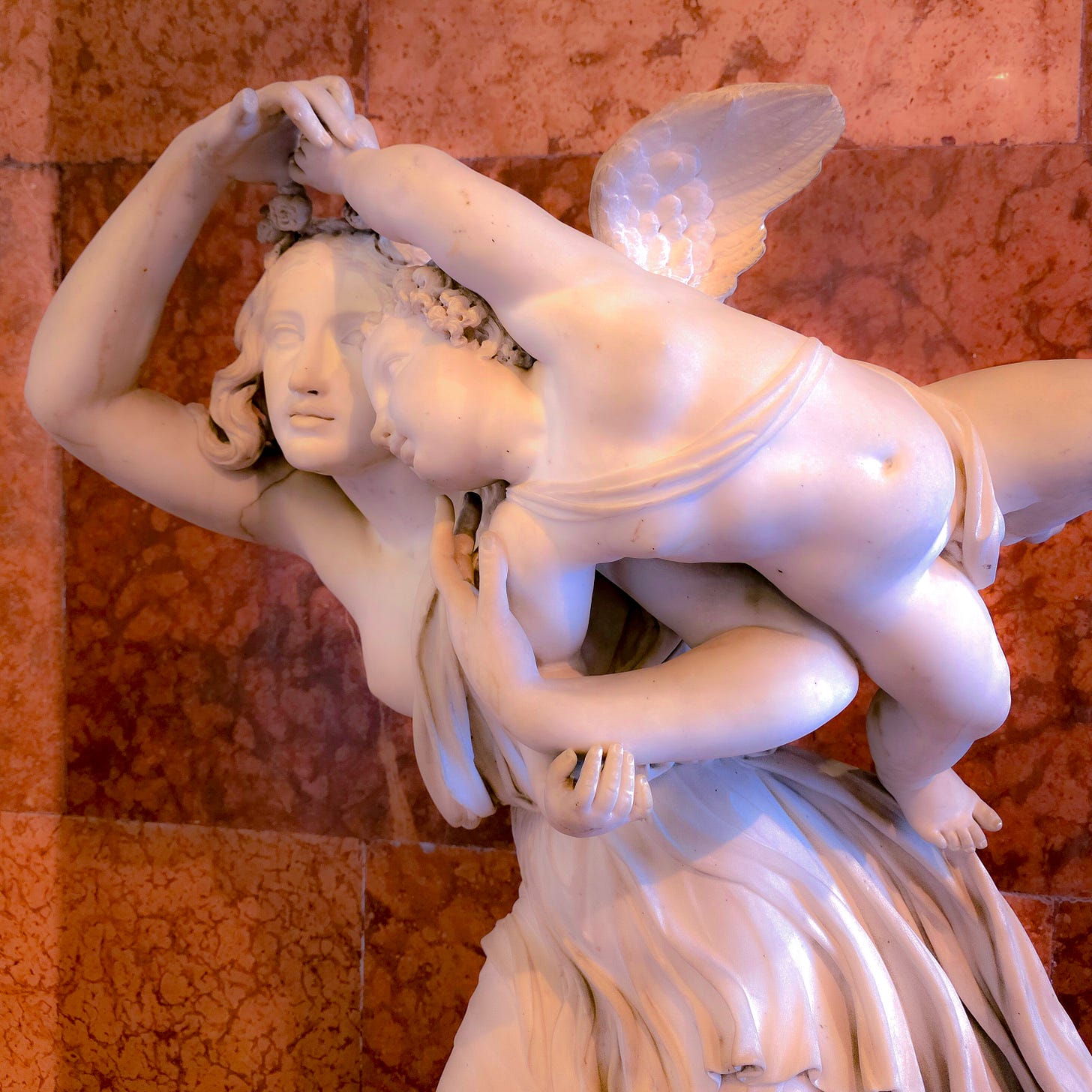
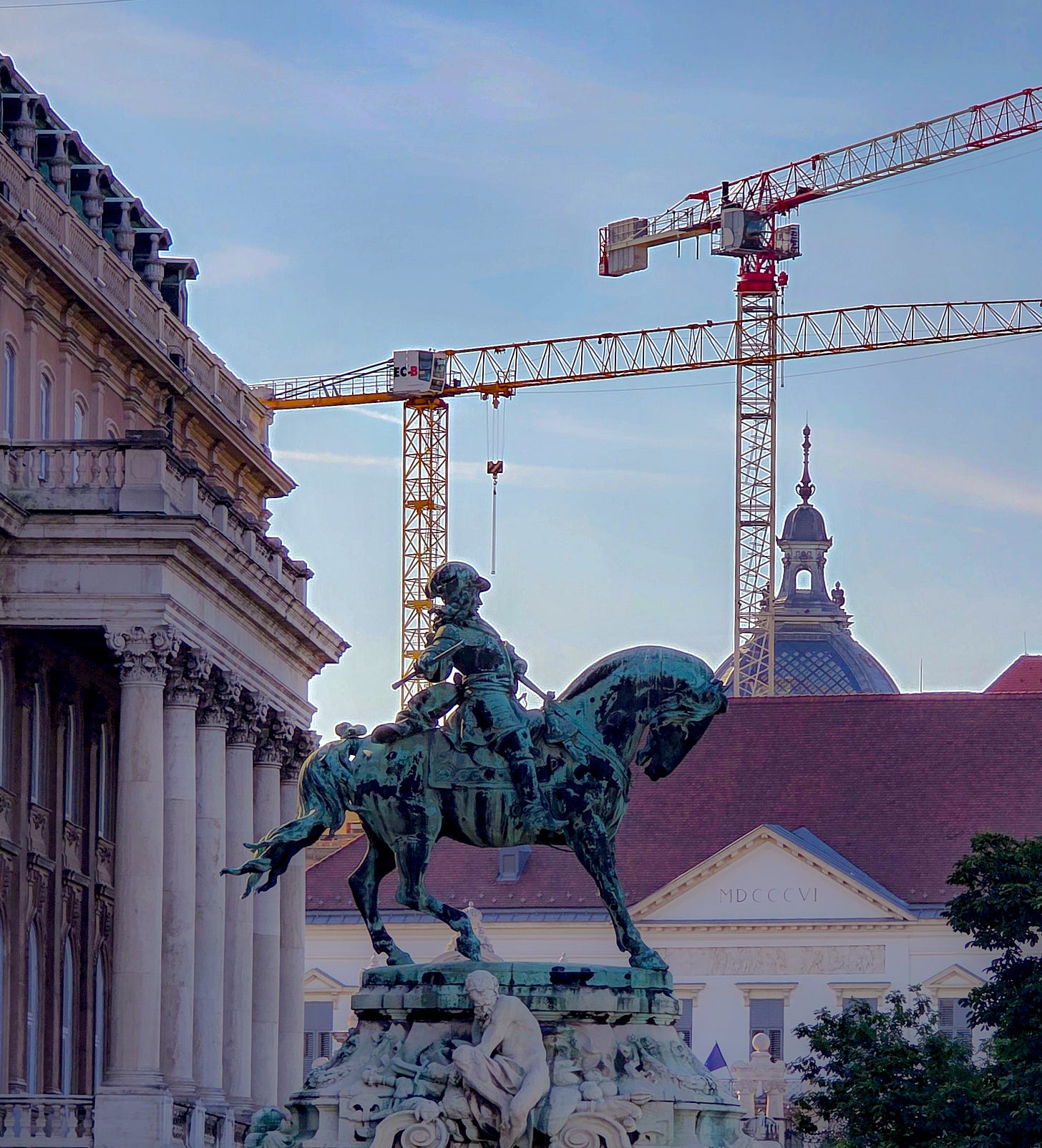
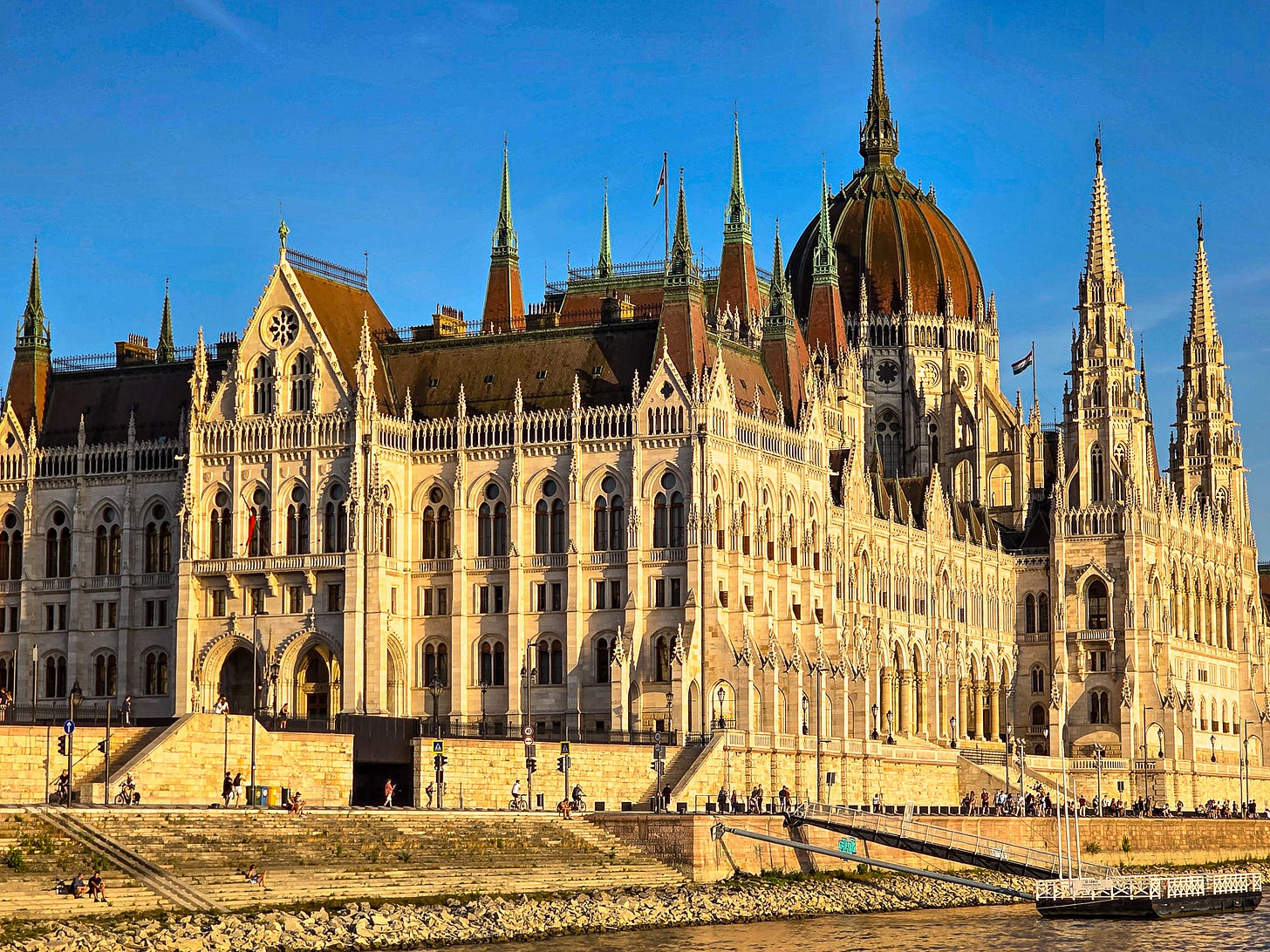
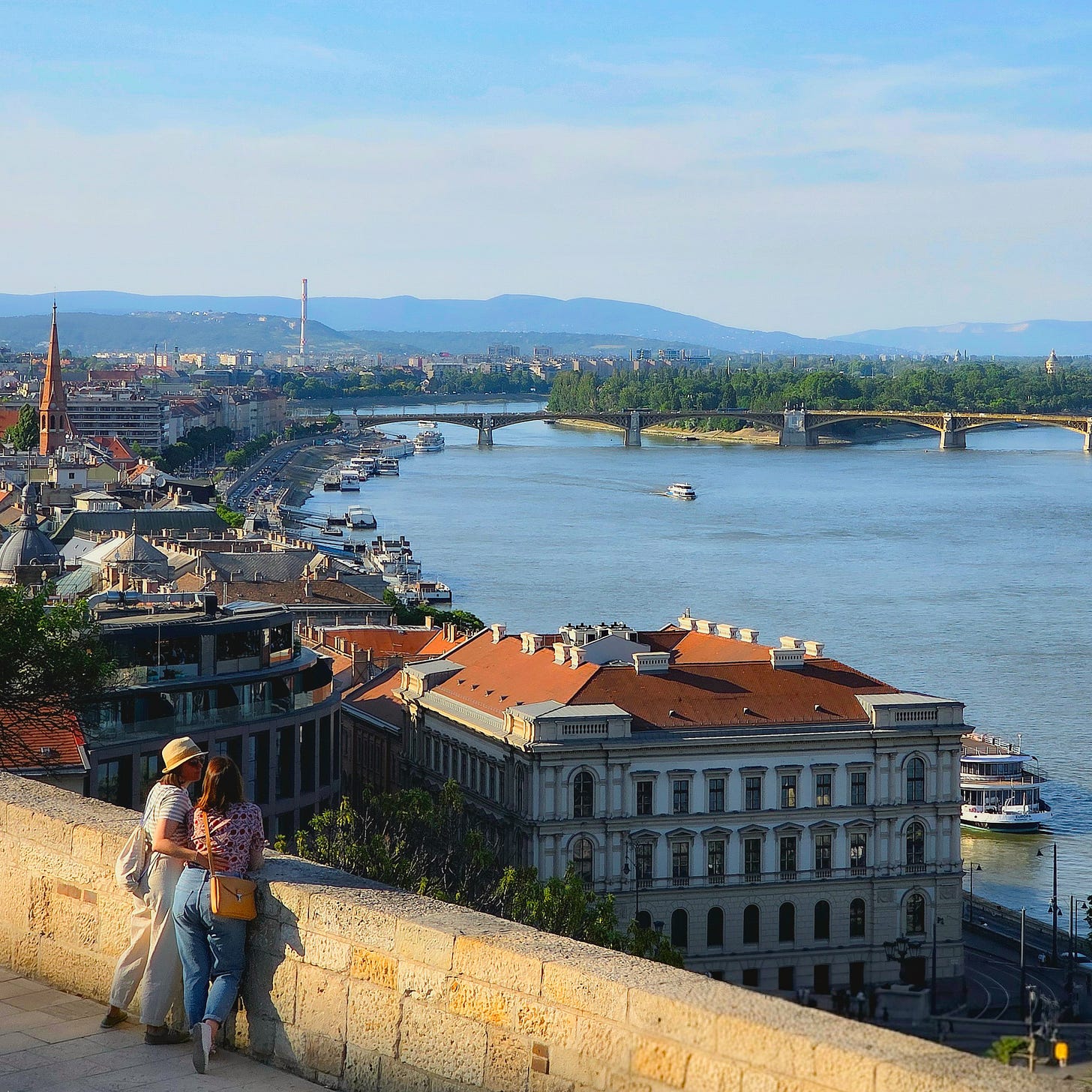
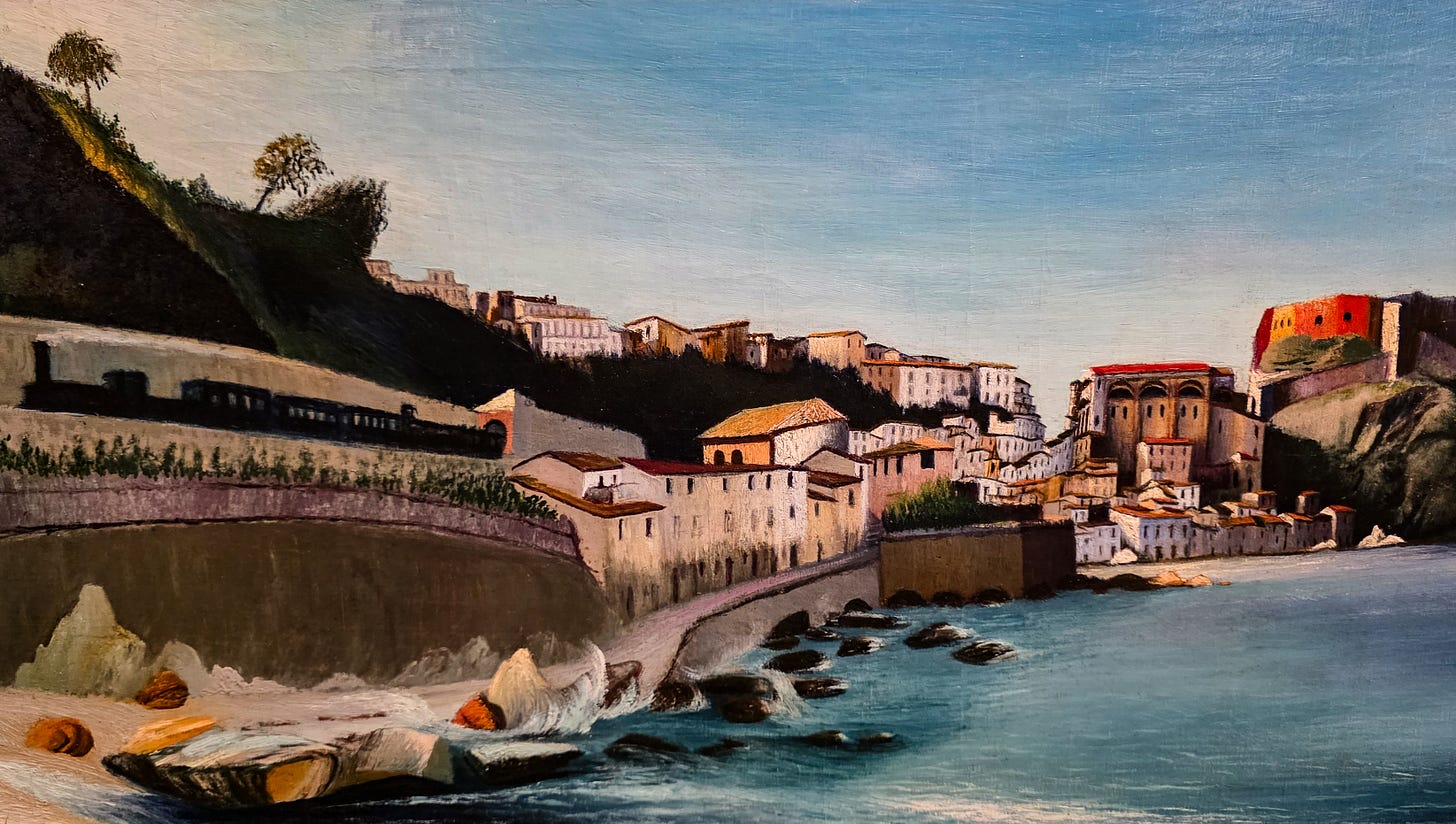
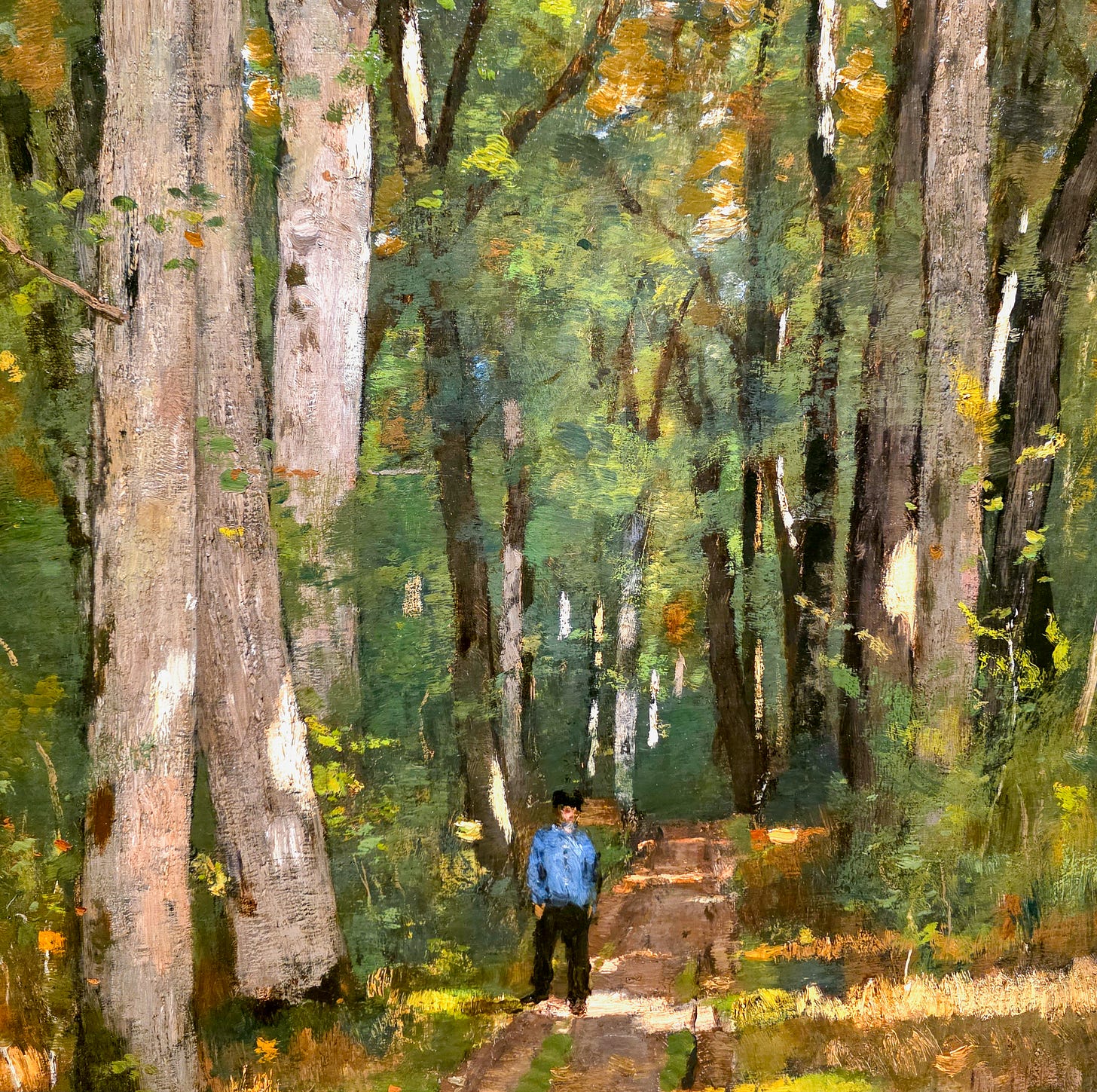
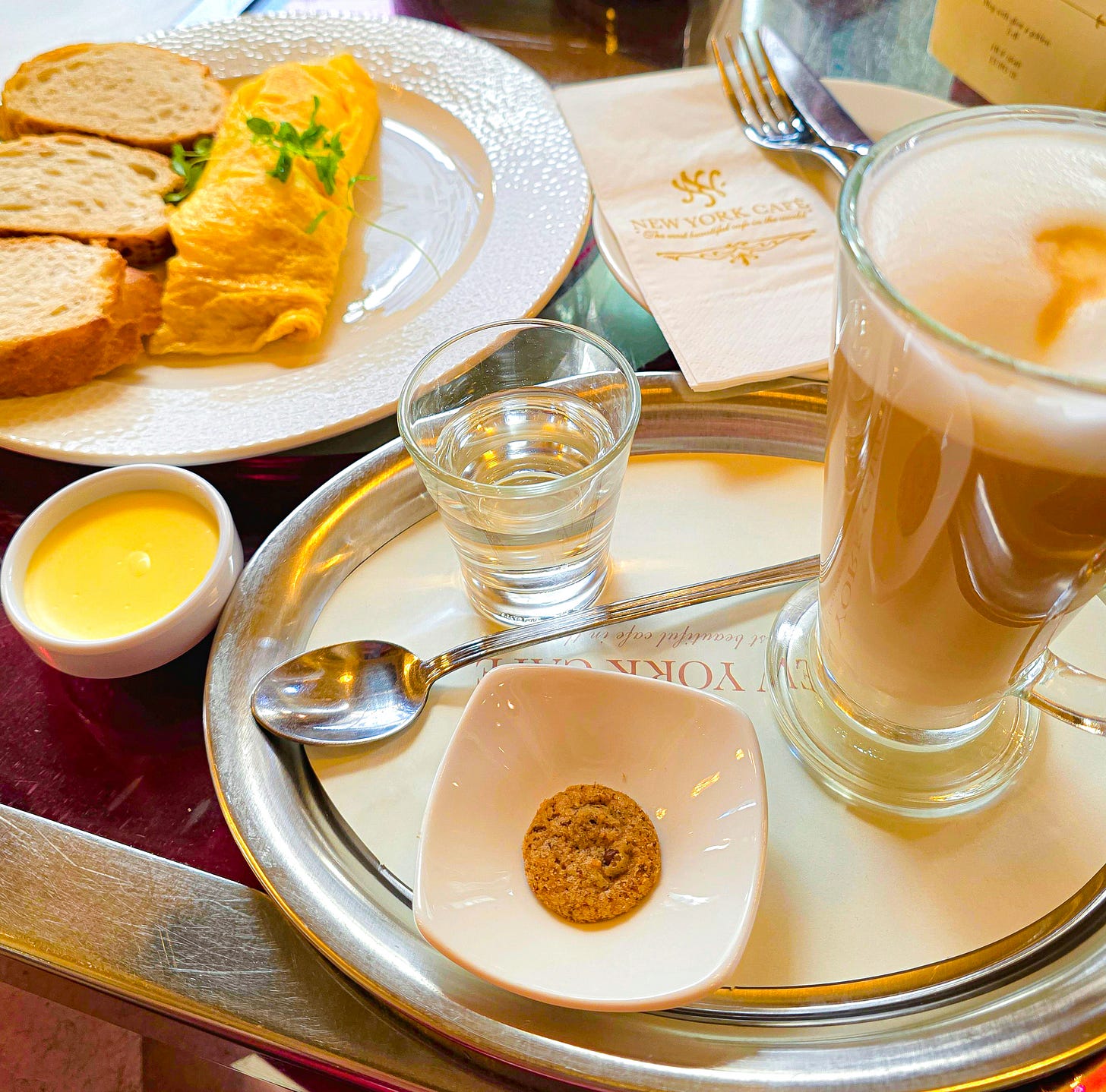
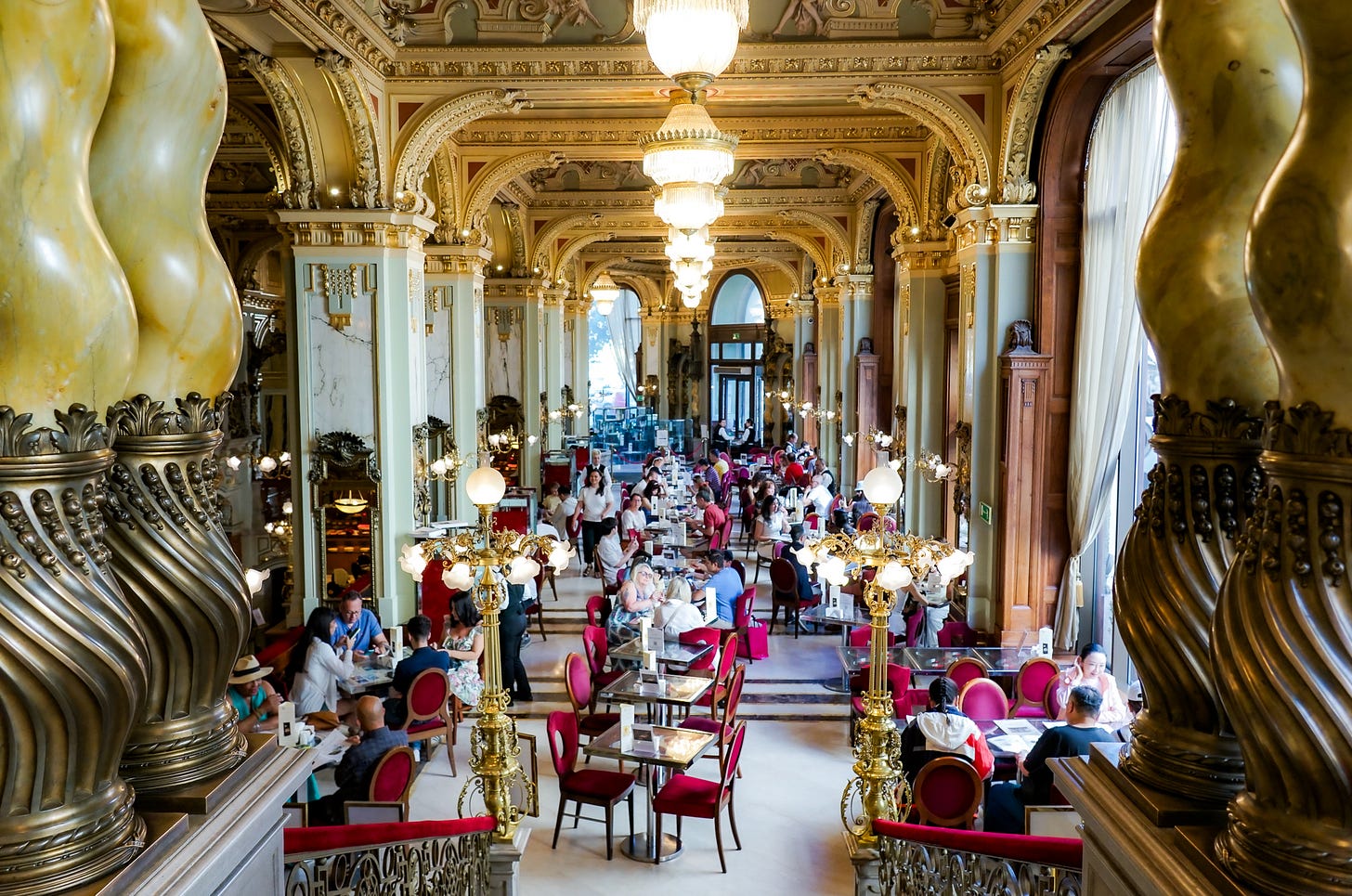
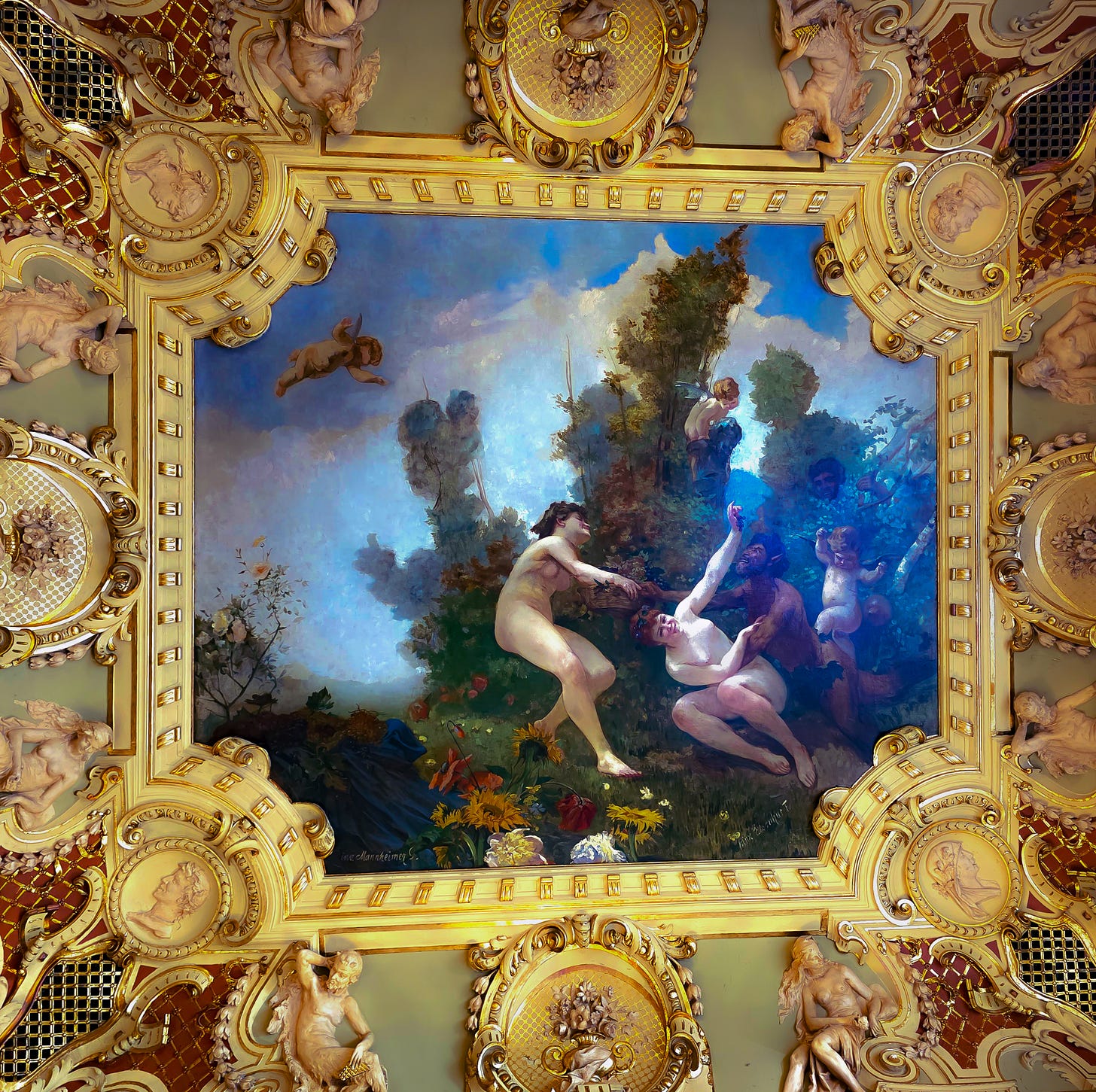
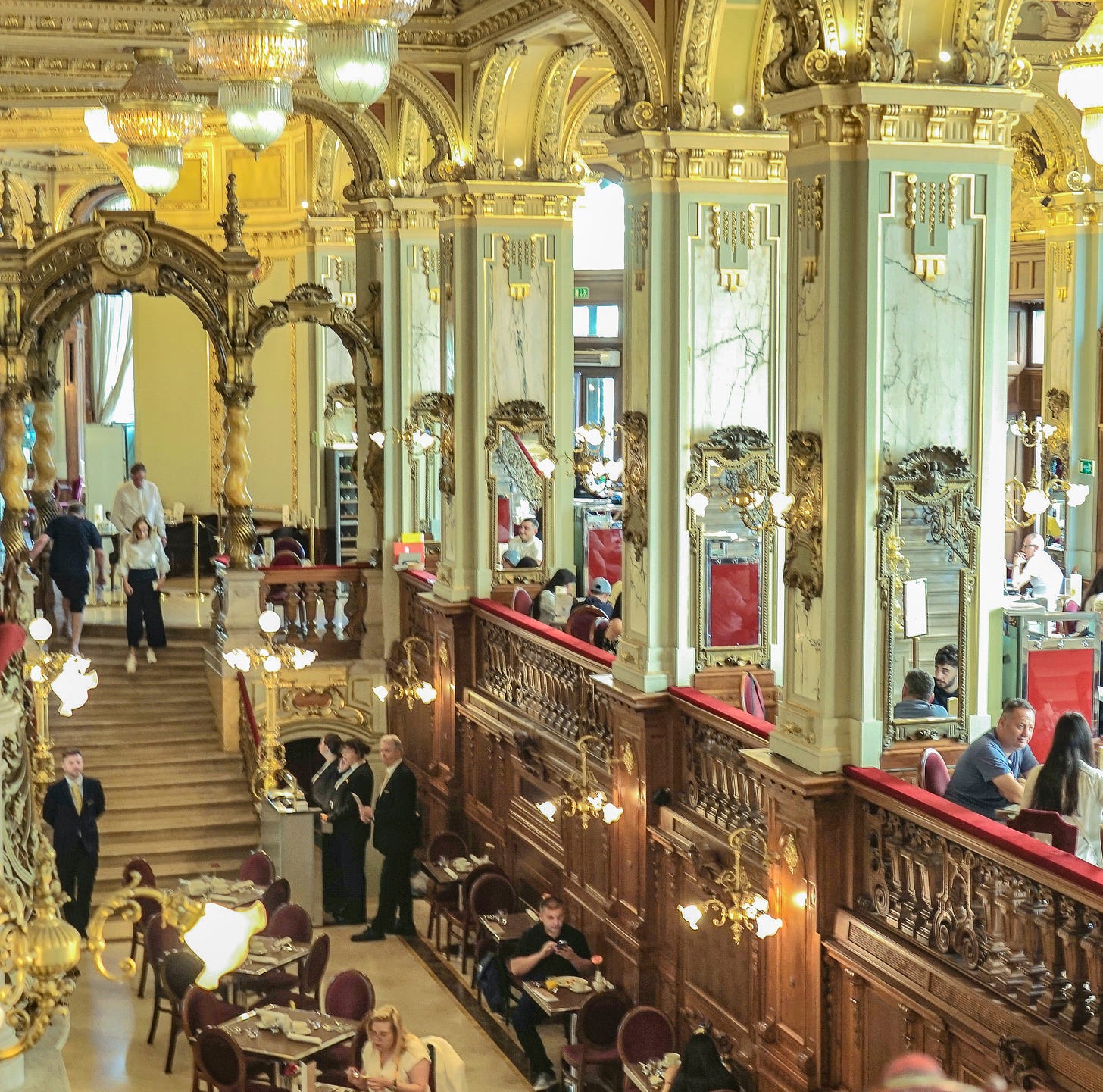
A beautiful essay to view and experience.
Thank you for documenting your travels so genuinely and thoroughly, my love! You have a gift for putting the emotion of travel to paper, and I feel like I was there with you. I look forward to waking up at the crack of dawn to experience New York Cafe with you someday! ❤️